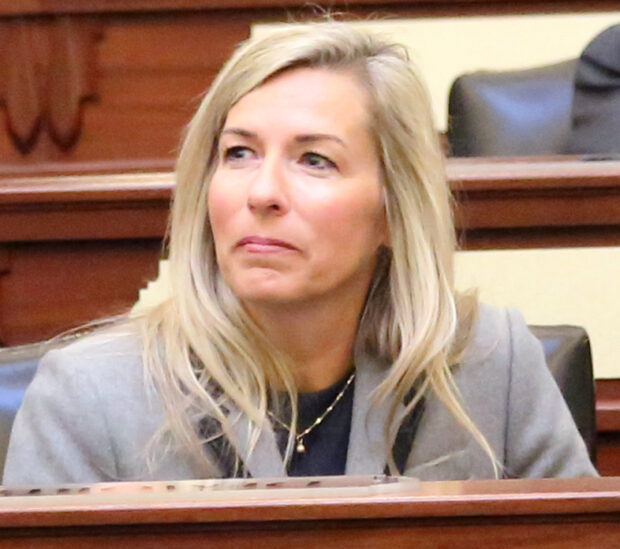Almost without any debate, the Idaho House passed a pair of bills Thursday morning that define and limit who has the authority to close schools due to infectious disease.
First up was House Bill 67, which would take away a public health district’s ability to close a school or program. If the bill passes, only the governor, State Board of Education, and the local school board or charter school board of directors would have the ability to close schools.
The bill also states that if the governor, State Board or local school board reopen a school or allow it to remain open — with or without measures in place to limit the spread of disease — that decision will not be considered a violation of a local health district or city order.

“This bill simply respects local control,” sponsoring Rep. Gayann DeMordaunt, R-Eagle, said. “It clearly delineates who can close and who keeps the doors open.”
Limiting school closure authority has been a top issue for Republicans. They tried unsuccessfully to get Gov. Brad Little to consider the same proposal during the August special session.
“This proposed legislation is a long time in coming,” DeMordaunt said.
Instead of allowing health districts to close schools, they would be given an advisory role. Existing law allows local school boards to close schools.
House Bill 67 passed 65-5.
Higher education closure authority
Next up was House Bill 68, a companion bill that limits and defines who can close higher education.
That bill says that only the State Board of Education would be able to close an institution of higher education in accordance with policies and procedures each institution adopts.
But for community colleges, the bill would only allow the community college’s board of trustees to close the community college or its buildings or programs due to infectious disease.
“(It’s) putting the people charged with governing responsible for making those decisions,” sponsoring Rep. Ryan Kerby, R-New Plymouth, said.
Rep. Sally Toone, D-Gooding, voted against the higher education closure bill because she was concerned it didn’t provide enough local control and accountability.
“I just struggle with only the State Board,” Toone said. “I just struggle with that thought process. They’re not elected.”
Members of the State Board are volunteers who are appointed by the governor.
After a short debate, House Bill 68 passed 60-10.
Both House Bill 67 and 68 head next to the Senate for consideration.
‘Idaho Promise’ mentorship network
The Senate Education Committee introduced a repeat bill to create a postsecondary mentorship network.
Co-sponsored by Boise Democratic Sens. Grant Burgoyne and Janie Ward-Engelking, the bill would create an “Idaho Promise” mentor program. The volunteer mentors would help high school students, families and veterans navigate their education options, such as job training, apprenticeships or applied science degrees.
“Instead of draining rural Idaho, instead of draining our small towns, we can begin to build things,” Burgoyne said Thursday.
In time, and at full build-out, Burgoyne envisions a network of some 400 community mentors. The bill would create seven jobs at a cost of $380,000. However, Burgoyne said he would not seek state funding for these new positions. Instead, he said he would take a page from the STEM Action Center’s funding playbook, and seek grant support.
With little discussion, the committee voted to introduce the bill, which means it could come back for a full hearing later.
Burgoyne proposed a similar bill in 2020. It narrowly passed the Senate on a 17-16 vote, but did not get a hearing in the House.
Kevin Richert contributed to this report.
Disclosure: Idaho Education News covered Thursday’s hearings remotely.
